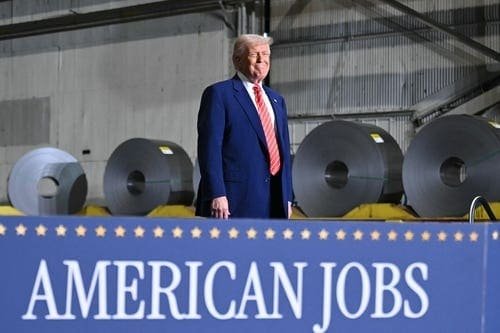Former U.S. President Donald Trump has granted a full and unconditional pardon to Scott Jenkins, the former sheriff of Culpeper County, Virginia, who was convicted in December 2024 for his involvement in a cash-for-badges bribery scheme. Jenkins was sentenced to 10 years in federal prison in March 2025 after being found guilty of accepting over $75,000 in bribes in exchange for appointing wealthy businessmen as auxiliary deputy sheriffs.

The Bribery Scheme
Federal prosecutors accused Jenkins of violating his oath of office by engaging in a scheme where individuals paid him in cash and campaign contributions to receive law enforcement badges and credentials. These individuals, including two undercover FBI agents, were neither trained nor vetted but were granted official positions within the sheriff’s office. Prosecutors argued that Jenkins used his authority for personal enrichment, undermining public trust in law enforcement.

Trump’s Justification for the Pardon
Trump announced the pardon on Truth Social, calling Jenkins a victim of a “corrupt and weaponized” Biden Department of Justice. He claimed that Jenkins had been persecuted by the Radical Left and insisted that the former sheriff did not deserve to spend a single day in jail.Trump further alleged that the judge overseeing the case, Robert Ballou, had refused to accept exculpatory evidence that could have cleared Jenkins.

Political Implications
This pardon is part of a broader pattern of Trump’s controversial clemency decisions, which have included individuals convicted in connection with the January 6 Capitol riot and other high-profile cases. Critics argue that Trump’s pardons often serve political and personal interests, rather than justice. Supporters, however, view them as correcting judicial overreach and protecting allies from unfair prosecution.
Jenkins’ Response
Jenkins had previously appealed for clemency, stating that he lacked the financial resources to appeal his conviction. He expressed confidence that Trump would intervene if he understood the full details of the case. Following the pardon, Jenkins thanked Trump and vowed to continue serving his community in other ways
Trump’s decision to pardon Jenkins has sparked heated debate over the use of presidential pardons and the politicization of the justice system. While Jenkins avoids prison, the case raises questions about accountability in law enforcement and the extent of executive power in overturning judicial decisions.
Discover more from The World Mix
Subscribe to get the latest posts sent to your email.




